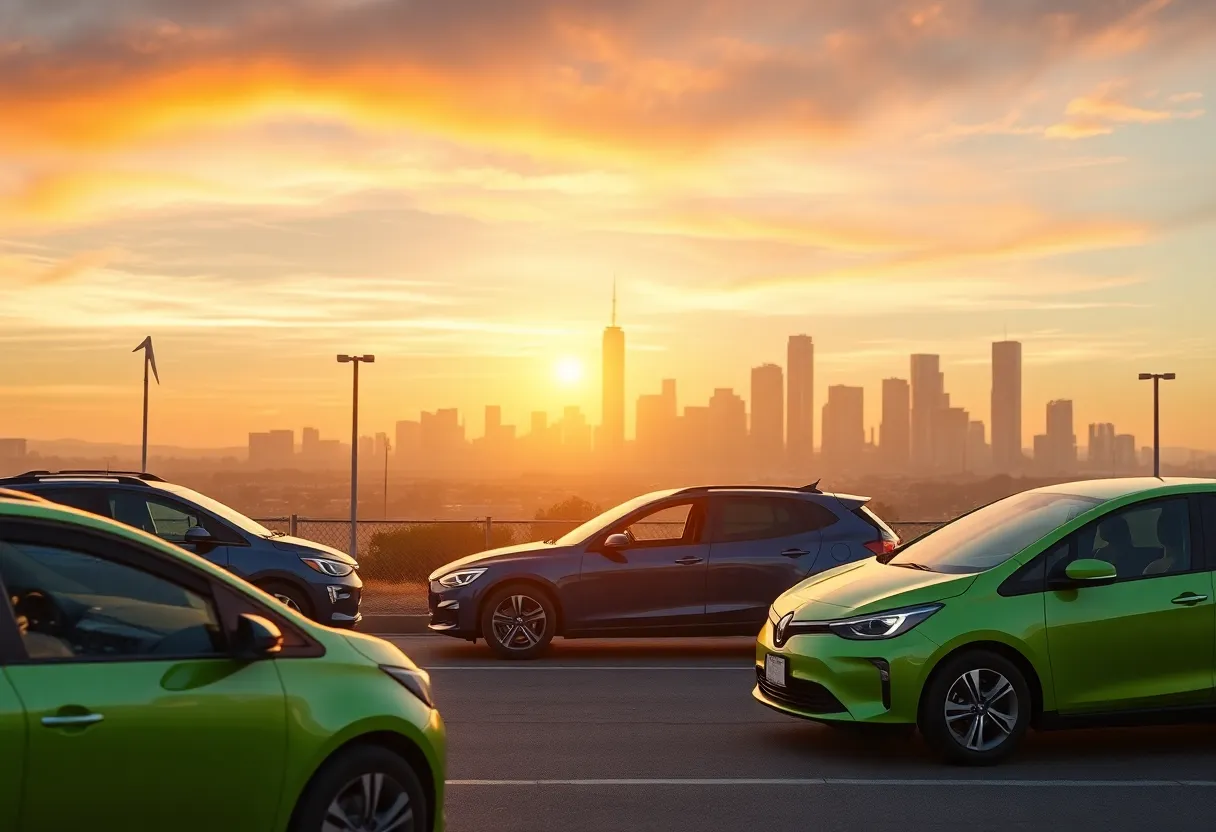News Summary
California’s initiative to ban new gas-powered car sales by 2035 is met with opposition as the Senate votes to block the regulation. With significant implications for public health and the environment, the state prepares to challenge Congress legally. Governor Newsom decries the measures as illegal and emphasizes the need for accountability in emissions. Other states reassess their own emissions standards in light of this congressional action, raising concerns about future climate initiatives nationwide.
California’s Ban on Gas-Powered Cars Faces Congressional Opposition
California’s groundbreaking move to ban the sale of new gas-powered cars by 2035 has encountered significant resistance as the Senate voted to block the rule. This regulation was the first of its kind in the United States, aimed at accelerating the transition to electric vehicles (EVs). The vote also included measures to prevent California from enforcing its stringent tailpipe emissions and pollution regulations for trucks. With President Donald Trump expected to sign this measure into law, the future of the state’s ambitious environmental goals hangs in the balance.
The state is now preparing a legal challenge to these congressional actions. California Governor Gavin Newsom has declared that the steps taken by Congress are illegal, asserting that the state will pursue litigation to uphold its vehicle regulations. Newsom emphasizes that the issue extends beyond just electric vehicles; it involves allowing polluters to evade accountability for harmful emissions, which have significant implications for public health and the environment.
Key Developments
California holds approximately 11% of the entire U.S. car market, meaning its regulatory decisions can influence purchasing choices nationwide. Environmental advocates are decrying the Senate’s decision, arguing it poses a serious threat to air quality and public health. Meanwhile, Republicans maintain that California’s rules impose oppressive burdens on consumers and manufacturers, asserting that the legislation could potentially strain the nation’s energy grid.
In a closely contested vote, Senate Republicans utilized a narrow exception to the filibuster to pass the measures aimed at blocking California’s emissions regulations. Only one Democratic senator supported the bill, citing economic concerns for constituents involved in the auto industry.
Legal and Environmental Implications
California’s Attorney General Rob Bonta has vowed to mount a legal challenge against the Republican measures. The ongoing conflict touches upon larger issues regarding environmental policy and the balance of power between state and federal authorities. The Biden administration previously restored California’s ability to enact its own emission standards, which added another layer of accountability to this unfolding saga.
Governor Newsom had launched the initiative in 2020, mandating that automakers must gradually increase sales of zero-emission vehicles until reaching full compliance by 2035. This ambitious plan represents a critical component of California’s overall strategy to combat climate change and improve air quality.
Impact on Other States
The legislation blocking California’s auto regulations may have far-reaching effects beyond its borders, particularly as several other states have either adopted or sought to adopt California’s stricter emissions standards. These states are currently reassessing their commitments in light of the new congressional actions.
Critics of the Senate’s decision argue that dismantling California’s standards is detrimental to the nation’s efforts in battling climate change and enhancing air quality. The measure also represents a significant shift to the Clean Air Act, weakening provisions that allowed California to establish its own stringent regulations to mitigate pollution.
The automotive industry’s response to the prohibition on gas-powered vehicle sales remains unclear, with some manufacturers traditionally aligning themselves with California’s rigorous standards aimed at reducing emissions and advancing electric vehicle technologies. The implications of these federal moves could alter market dynamics, influencing both production choices and consumer demand across the country.
As the situation continues to evolve, all eyes will be on California as it takes steps to defend its ambitious environmental policies in court and navigates the complex intersections of federal and state authority in shaping the future of the automobile industry.
Deeper Dive: News & Info About This Topic
- JOC: California Rips US Senate Move Targeting States Emissions Rules
- Wikipedia: California Emissions Standards
- Autoweek: Congress Rescinds California Emissions Standards
- Google Search: California Emissions Standards
- Jalopnik: California Emissions Standards Challenged
- Encyclopedia Britannica: Emissions Regulations
- AP News: Senate California Electric Cars Emissions
- Google News: California Emissions Regulations
- The Guardian: Republicans California EPA Waiver Cars
- Google Scholar: California Emissions Policy







